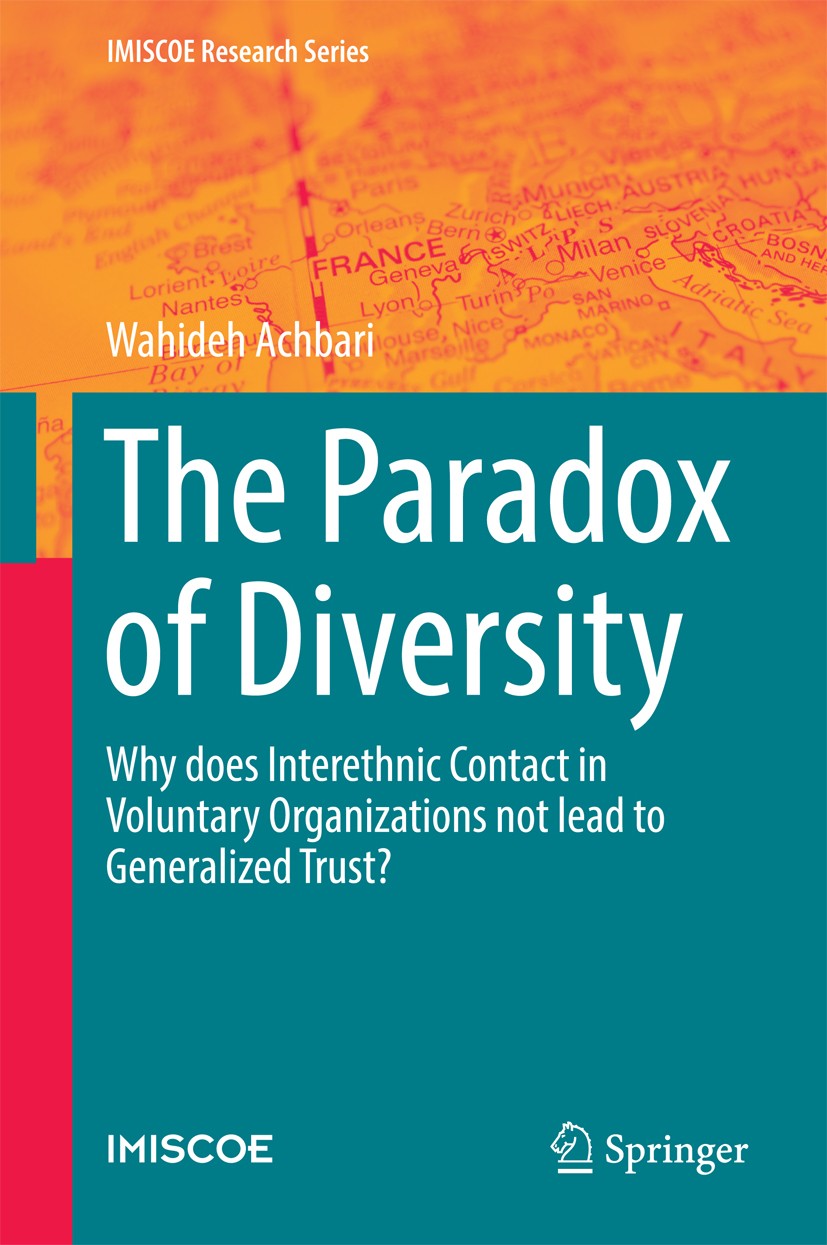| 书目名称 | The Paradox of Diversity |
| 副标题 | Why does Interethnic |
| 编辑 | Wahideh Achbari |
| 视频video | http://file.papertrans.cn/917/916006/916006.mp4 |
| 概述 | Argues that cognitive processes contribute towards the evaluation of unknown people.Investigates interethnic contact in voluntary organizations.Demonstrates that participation in ethno-national organi |
| 丛书名称 | IMISCOE Research Series |
| 图书封面 |  |
| 描述 | This book is about ethnic diversity in voluntary organizations and seeks to explain whether intergroup contact contributes to the development of generalized trust. It relies on a novel multilevel design and data from Amsterdam in which 40 voluntary organizations and 463 participants have been sampled. Contrary to conventional wisdom, this book argues that cognitive processes are contributing more toward the evaluation of strangers or generalized trust than interethnic contact. Since trusting unknown people is essentially a risky endeavor, this suggests that participants of both association types who report trusting strangers can afford to do so, because they are better educated, have a more positive worldview, and have had fewer negative life experiences. That is to say, they are socially more successful and view their future as more promising. Previous findings are inconclusive since most studies that conclude diversity has led to less generalized trust do not include interethnic contact directly in their analyses. These studies also downplay the importance of cognitive processes, which may shape generalized trust. What is more, people join ethnically diverse civic groups, because |
| 出版日期 | Book 2016 |
| 关键词 | Bridging and bonding; Ethnic diversity; Ethno-national organizations; Generalized trust; Interethnic con |
| 版次 | 1 |
| doi | https://doi.org/10.1007/978-3-319-44243-3 |
| isbn_softcover | 978-3-319-83018-6 |
| isbn_ebook | 978-3-319-44243-3Series ISSN 2364-4087 Series E-ISSN 2364-4095 |
| issn_series | 2364-4087 |
| copyright | Springer International Publishing AG 2016 |
 |Archiver|手机版|小黑屋|
派博传思国际
( 京公网安备110108008328)
GMT+8, 2026-2-9 15:27
|Archiver|手机版|小黑屋|
派博传思国际
( 京公网安备110108008328)
GMT+8, 2026-2-9 15:27


